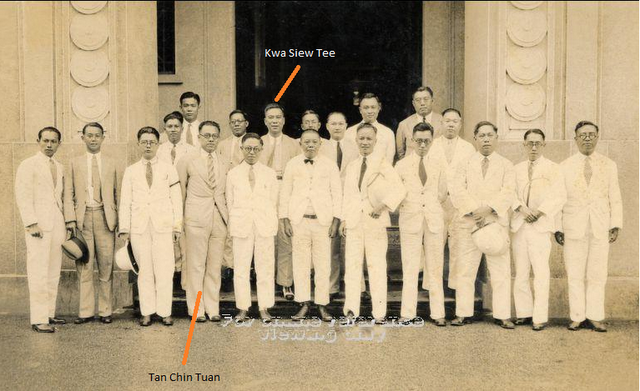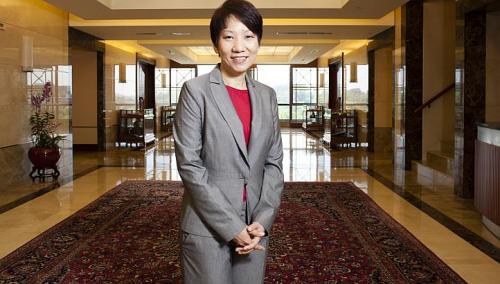If Hongkieland is considered somewhat lacking in this regard
Sinkieland must be as impoverished as Ethopia on this score
Rule of law is like a muscle exercise keeps it strong
Using courts to check grossly overpaid Gabrament
Public interest lawyers keep the rule of law strong
Grossly overpaid Ministar certainly rejects such idea
Without even consulting the populace on its views
Hell an article such as this would not even see the light of day
In that august propaganda mill they now call the Shitty Times
More public interest lawyers can help ease Social Tensions
Recent headlines in the South China Morning Post are eloquent testimony that the Hong Kong government is failing in its role to provide a social safety net and protect the rights of its residents: "New town will leave 1,000 old people without homes"; "Indonesian maid 'left in diaper, tied to a chair';" "Ethnic minority pupils 'being set up to fail'."
Yet, as social tensions mount, the city is failing to make use of a key problem-solving tool: public interest lawyers. These are lawyers who make a career of "fighting for the little guy", representing the poor in courts, filing lawsuits that challenge government policy or inaction.
In the US, Australia, New Zealand, and other countries, public interest law has flourished because there are abundant educational and job opportunities for law students who want to pursue this work. In Hong Kong, however, these opportunities are far fewer. As a result, the pool of public interest lawyers is small and the city is depriving itself of a powerful resource for quelling social discontent.
When I was a law student at the University of Wisconsin in the 1980s, I was enrolled in a clinical law programme that allowed me to argue a consumer protection case before the Wisconsin Supreme Court.
The experience was transformative. I learned about the problems faced by consumers who did not have adequate information to make informed choices and about the power of the law to remedy wrongs. I decided to devote my career to public interest legal work. After I graduated from law school, I went to work as a lawyer with the Legal Aid Society of New York, which provides direct legal services to poor people. I earned a decent salary and was promoted.
Today, in the US, there are well over 100 public interest law organisations and they employ large numbers of staff lawyers to represent their clients. These organisations are considered essential elements of the social safety net. Federal and state governments can't solve social problems alone and they have come to rely on public interest law organisations not only to provide much needed services but to generate new ideas for tackling social problems.
In Hong Kong, the environment for public interest law is very different. While there are some excellent legal clinical programmes that allow law students to work on cases, meet clients, gather evidence and observe trials, rules limit students from performing active, lawyer-like roles. Even more disconcerting is that when law students graduate, they will have a hard time finding jobs as public interest lawyers because few jobs exist here.
Under Hong Kong rules, no lawyer is allowed to directly represent a client other than as a solicitor in a law firm. Where a lawyer is employed by a corporation or the government, the employer is the client. Similarly, where a lawyer is employed by a charity, the employer is the client. The lawyer cannot represent the people the charity serves.
Without the ability of staff lawyers to provide direct services to clients, charitable groups offer few jobs to idealistic law graduates wishing to pursue public interest.
To be sure, there are lawyers in Hong Kong who have been shining examples of public interest advocacy, but they can neither meet the demand for services nor are they in the position to hire any more than a few law graduates.
The lack of opportunities is bad for Hong Kong on several fronts. Public interest lawyers are problem solvers, and a shortage means the city is not utilising a resource it desperately needs.
On a broader level, public interest lawyers protect the rule of law. A key element is "access to justice". To that end, Article 35 of the Basic Law cites "access to the courts" as being something to which all Hong Kong residents have a right. That article also refers to the right of Hong Kong people to institute actions against executive authorities - that is, the government.
Rule of law is like a muscle. Exercise keeps it strong. By using the courts to check whether the government has given effect under the Basic Law, public interest lawyers help keep the rule of law strong.
Hong Kong should look for ways to grow and nurture this precious resource. One change to consider would be carving out a limited exception allowing solicitors in public interest law organisations to provide direct representation to clients. This could be implemented on a trial basis for, say, five years, after which the Law Society and the Bar could examine the impact of the change.
Alongside newspaper headlines about Hong Kong's growing social tensions, there are more and more articles worrying that the city is facing a brain drain.
If idealistic, forward-thinking young lawyers cannot use their skills to improve their city, they will leave and go to places where they can.
Hong Kong has much to lose by not encouraging and utilising public interest lawyers, but it is not too late to act.
Robert Precht is director of Justice Labs Limited, a Hong Kong think tank, and co-founder of the Hong Kong Public Interest Law Group
http://www.scmp.com/comment/insight...erest-lawyers-can-help-ease-hong-kongs-social









